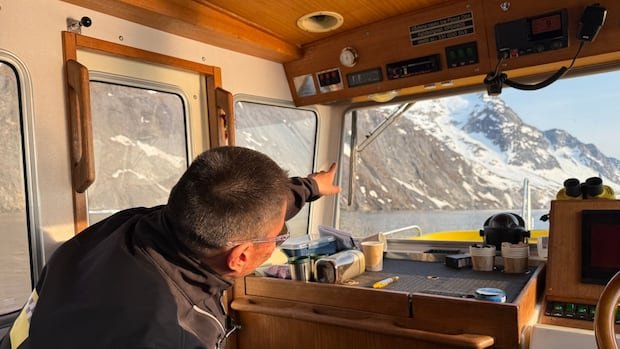Miilu Gehlert recently completed a challenging water taxi journey in the Nuuk Fjord, just north of Greenland’s capital. Despite this feat, Gehlert faced even tougher trials during his involvement in Greenland’s Arctic Basic Training program, which commenced last year under Danish military supervision. The program, designed to educate young Greenlanders in emergency response and search and rescue operations, exposed Gehlert to strenuous conditions, including sleep deprivation, mosquito-infested environments, and the need for constant vigilance against potential threats.
Having participated in various training exercises alongside firefighters and police officers in different locations such as the Faroe Islands and Iceland, Gehlert highlighted the diverse experiences he gained. Reflecting on the significance of such programs in enhancing the security of Greenland, Gehlert emphasized the need for continuous improvement, especially in light of perceived threats from the U.S.A.
Greenland’s strategic importance has been underscored by recent events, including U.S. President Donald Trump’s expressed interest in acquiring the territory for national security reasons. With Greenland hosting a permanent U.S. military base and attracting global attention due to its mineral resources and strategic location in the Arctic, geopolitical dynamics in the region are evolving rapidly. As the melting of sea ice opens up new maritime routes, countries like Russia and China are showing increased interest in the Arctic, prompting close monitoring by the Danish military.
Deputy Commander Lars Nielsen highlighted the challenges posed by the vastness of Greenland’s territory, which spans 2,700 kilometers and is predominantly covered in ice. Nielsen emphasized the implications of climate change on military operations in the Arctic region, stressing the complexity of protecting such a large area while ensuring secure access.
Efforts to strengthen security cooperation in the region, particularly between Denmark, Greenland, and Canada, have gained momentum. Nielsen emphasized the importance of collaboration with Canada, citing the Joint Arctic Command’s commitment to enhancing partnerships to address the unique security challenges in the Arctic region.
Canada’s ambassador to Denmark, Carolyn Bennett, emphasized the familial ties between Greenland and Canada, particularly noting the shared Inuit heritage. Bennett highlighted Canada’s commitment to bolstering diplomatic relations with Greenland, including the establishment of a consulate in Nuuk as outlined in Canada’s Arctic foreign policy.
In reciprocation, Greenland aims to establish diplomatic representation in Ottawa, underscoring the significance of nurturing ties with like-minded neighbors during challenging times in the Arctic. The recent surge in attention on Greenland and Canada from the U.S. presents an opportune moment to deepen bilateral relations and uphold sovereignty amidst evolving geopolitical dynamics.
Curator Frederik Fuuja Larsen emphasized the longstanding connections between Greenland and Canada, rooted in shared ancestry and cultural ties. Larsen highlighted the outpouring of support between the two nations, underscoring the solidarity and mutual respect that characterize the relationship.
In conclusion, as Greenland and Canada navigate complex geopolitical landscapes and external pressures, the shared history and mutual support between the two nations serve as pillars of strength and unity in the face of evolving challenges in the Arctic region.

